Has your password been leaked? Please check now
Many websites have leaked passwords. An attacker can download usernames, passwords and use them to "hack" your account. This is why you should not re-use passwords for important websites, because a password-leaked website can give attackers everything they need to log into accounts. other.
Have I Been Pwned?
Have I Been Pwned? Troy Hunt maintains a database of username and password combinations from public vulnerabilities. They are taken from publicly available violations that can be found through various online websites, or black websites. This database only helps users check their passwords without having to access other parts of the site.
To use this tool, go to the main page Have I Been Pwnd? (haveibeenpwned.com) and search for username or email address. The results tell you whether your username or email address has ever appeared in a leaked database. Repeat this process to check other email addresses or usernames. You will see which password is leaked from your email address or username, thus providing you with information about the password that may have been compromised.
If you want to receive email notifications when your email address or username appears on the offending site, click the " Notify me when I get pwned " link.
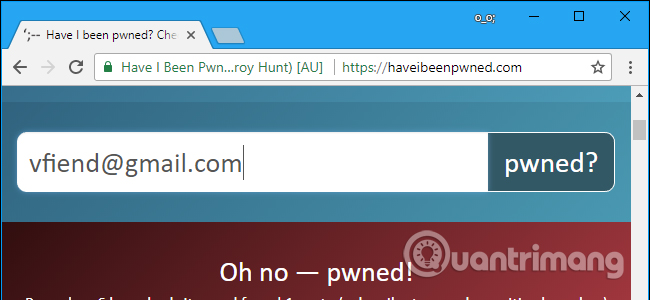
You can also search for a password to see if it ever appeared in a leaked web. Go to Pwned Passwords (haveibeenpwned.com/Passwords) on the website Have I Been Pwned ?, enter the password in the box and click the " pwned? " Button. You will see whether the password is in one of these databases and how many times it is seen. Repeat this process if you want to check other passwords.
Warning: You should not enter your password into third-party websites that you provide because they can be used to steal your password if the site is dishonest. Should you only use the website Have I Been Pwned? Be widely trusted and explain how your password is protected. In fact, the popular password manager 1Password currently has a button that uses the same API as the website, so they will send a copy of the password that has been used for this service. If you want to check if your password has leaked, this is the service you should use.
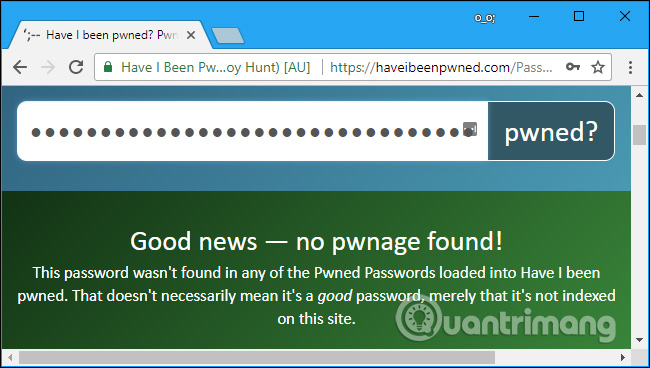
If an important password you use has been leaked, you should change it immediately. Users should use the password manager to easily set a strong, unique password for each important website to use. Two-factor authentication can also help protect important accounts because it will prevent attacks from entering them without additional security code even if they know the password.
- How to check password strength
LastPass
LastPass has a similar feature integrated into Security Challenge. To access it from the LastPass browser extension, click the LastPass icon on the browser toolbar and then select More Options> Security Challenge.
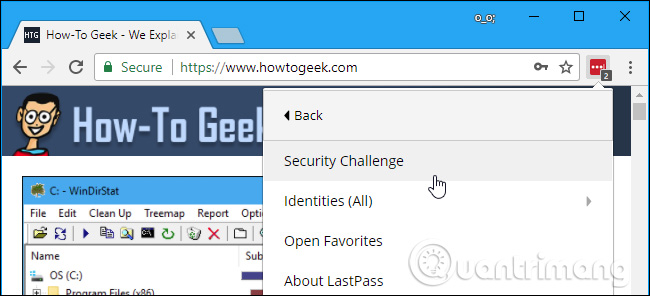
LastPass found a list of email addresses in the database and asked if you wanted to check if it ever appeared in any leaked pages. If you agree, LastPass checks them in the database and sends information about any leaks to you via email.
LastPass also provides an overview of the " Compromised " password here. This list tells you which site has violated security since the last time you changed the password on that page, meaning your password may be exposed. You should change the password of any website that appears here.
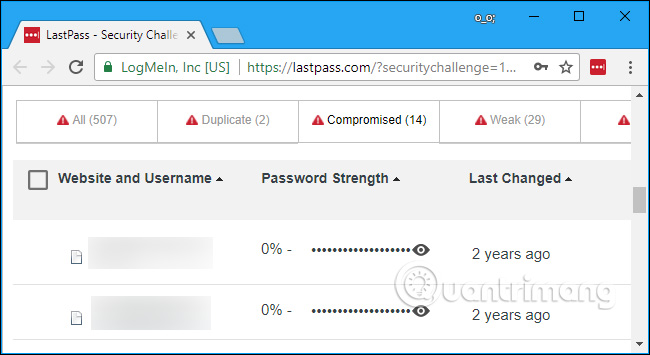
- Managing passwords with LastPass 1.50
1Password
The web-based version of 1Password password manager can now check whether your password has been leaked or not. In fact, 1Password uses the same service with Have I Been Pwned ?. It has an integrated " Check Password " button that automatically sends the password to the service and provides feedback. In other words, it works just like how to use the site Have I Been Pwned ?.
If you are 1Password user, you can take advantage of this service by logging into your account on 1Password.com. Click " Open Vault " and then click on one of your accounts. Press Shift + Control + Option + C on Mac or Shift + Ctrl + Alt + C on Windows, and you will see the " Check Password " button to check if your password appears in the database Have I Been Pwned ? or not. That's a new experimental feature, so it's now hidden, but it should be better integrated into 1Password's future versions.
This feature will also be integrated into 1Password's Watchtower feature in the future. The Watchtower feature alerts you from within 1Password application if any of your saved passwords can be vulnerable and need to be changed.
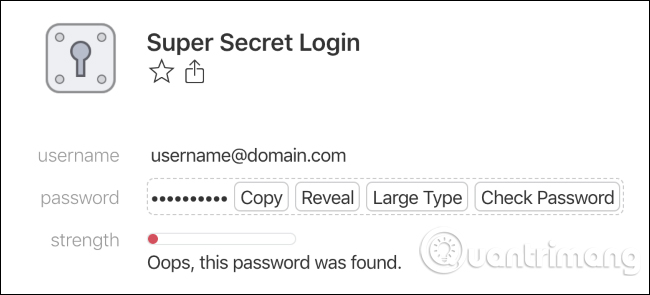
The most important thing you can do is not reuse passwords, at least for important websites. Email, online banking, shopping, social media, business and other important accounts all have to have its own password, so a leaked website does not endanger any any other account. Password manager helps create unique strong passwords, ensuring you don't have to remember a hundred different passwords.
See more:
- 4 utility applications that help manage passwords
- Summarize some of the safest ways to create and manage passwords
- Password types to know